
views
X
Research source
Once you complete a barbering program, get your state license, and build reliable clientele, you can be sure to count on your customers regularly. Hair, much like time and tide, stops for no man. Armed with your hair-snips, clippers, and straight razor, you are just the person for this job.
Meeting Education Requirements

Get your high school diploma. Many states require that you not only complete a barbering program, but also have your high school diploma. Even if the state you live in does not have a diploma requirement, many barbering schools list this among admission requirements. While in high school, you may have the option to prepare you for your barbering career. Any classes on hair styling, small business management, or accounting can be a serious benefit to your career. Many high schools partner with community colleges to offer more specialized courses for students. You might be able to take a course in barbering or hair styling, which will give you a head start in your career.
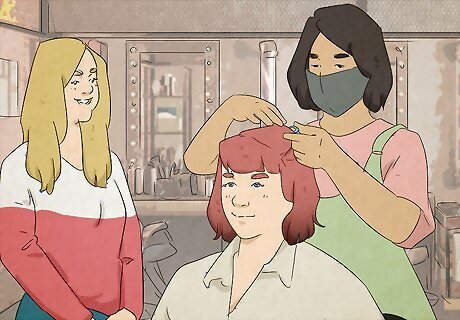
Assist an experienced barber. You might even want to see if a local barber will take you on as a part time employee. Explain your plans to him, and let him know that you're willing to help with whatever he might need around the shop while you observe his daily routines. Try to pay attention to: How space and equipment are organized How he interacts with customers How chores and workflow are managed Miscellaneous errands you might not have considered
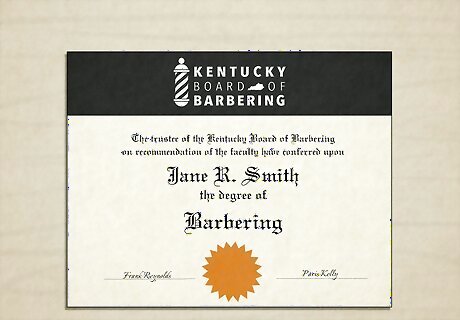
Graduate from a barbering program. Choose your program wisely. Your education and time are an investment, and you'll want to learn not only the ins and outs of snips and shaves, but you'll also want to learn about the business side of things. Some states also require a minimum number of hours of practice before you can even be considered for licensing as a barber. Regardless of state, most programs include courses in: Bacteriology Honing and stropping Hygiene Physiology Sanitation and sterilization Scalp and skin diseases Shampoo and scalp massage State barber laws, rules, and regulations Straight razors
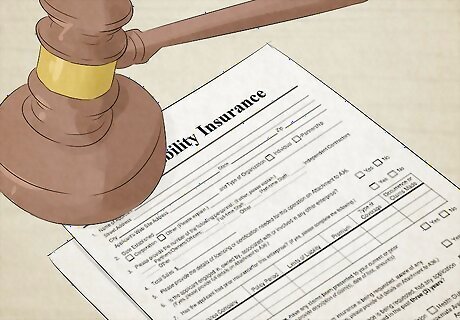
Take into account legal considerations. Some of this may be covered in your barbering program, but on the business side of things, you might not think about the cost of insurance you may need to cut hair and shave. Accidents, though few and far between, do occur. You'll need to protect yourself, and your clients, from issues that might arise from being uninsured.

Get your license. No matter the state you live in, you will be expected to take an examination to prove that you are ready to be a barber. In some cases, this test might be unique to your state or a national exam created by the National-Interstate Council of State Boards of Cosmetology (NIC). Some states even use a combination of state and national tests, but the written portion of the test will include: Chemical services Chemistry Electricity and light Facial and shaving services Hair and scalp Haircare services Infection control and practice Skin histology Tools, implements, and equipmentAdditionally, there may be a practical portion of the exam which might include: Chemical relaxing Chemical waving Hair lightening/coloring Haircutting Set up and client protection Shaving with a straight razor

Consider your options for starting employment. There are various routes you can take as a newly licensed barber. You may want to apprentice under a more experienced pair of scissors until you are fully confident in your skills and are ready to strike out on your own. You can also: Work at a barbershop for commission Rent a chair from a local barbershop Contract with a spa Open your own barbershop
Evaluating Yourself and the Profession

Do some field research. Take several trips to various barbershops, choosing ones that match the image of the one in which you would like to work. Bring along a notebook or keep your cell phone handy and take notes on the state of the barbershop, the duties performed by the barber, and any other responsibilities you might notice. Try to plan at least one of your barbershop visits during a high volume time of the day. You can do this by stopping by the shop you want to visit throughout the week, peeking in the front window to see which days are busiest. It's important to get an idea of the range of responsibility of a career before committing to it. If you aren't sure you can handle the busy days, you may want to reconsider your choice of career.

Speak with the barber while doing your field research. This is a rich opportunity for you to inquire about a practicing barber's experience, his thoughts on the profession, difficulties he's had in his career, and so on. If there is a particular barber you admire, try to arrange it so that you and he have time to chat, or even schedule a shave or a haircut with him.
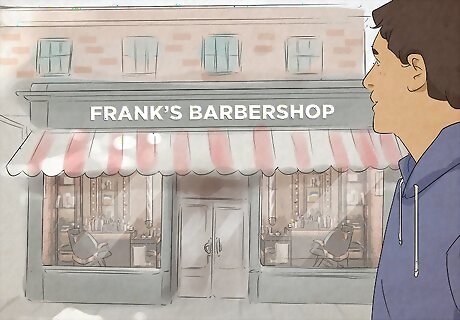
Consider the clientele. Location has a large impact on the kind of clients that will frequent the barbershop in which you will work. Your ideal clientele might be outside your reach while starting out as a barber. It's important that you provide a high level of service to all customers, even if you consider yourself more an artist than a glorified pair of hair clippers.

Judge your physical limits. Though a job as a barber might seem quite laid back, after a busy day spent mostly on your feet, you might begin to question your choice of vocation. Is standing for long periods of time difficult for you? Can you maintain precision and skill with repetitive mechanical tasks, like sweeping, operating scissors, and using clippers? These requirements are all in a day's work for a successful barber.

Judge your social skills. Though barbers are required to know how to cut and shave clients, sterilize tools, and even assess skin conditions, all of which are normally covered in the course of your barber schooling, no amount of school can guarantee your personality. Barbers are expected to be personable, friendly, and skillful. If you lack any of these qualities, barbering might not be for you.
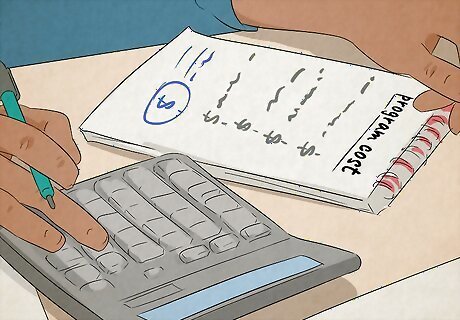
Count the cost. There are some certification programs that are affordable, but some programs can be expensive. You will also need to consider the cost of owning your own barbershop, is that is a goal of yours. Some 6-month, comprehensive programs can cost up to $3,000, while a top tier 12-month program might cost as much as $12,000. An associate's degree may take you 2 years to complete and anywhere between $6,000 and $26,000.
Working as a Barber
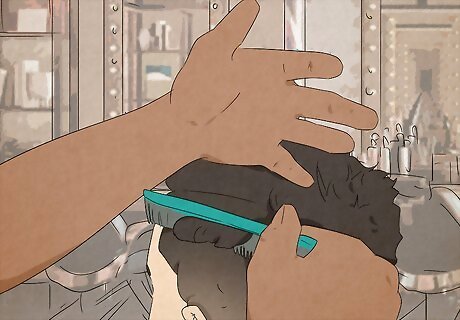
Keep your skills sharp. Now that you've completed barbering school and received your license, you may be tempted to rest on your laurels and take things as they come. Even if most of your clientele prefers not to be shaved by straight razor, you never know when this service will be requested. Some barbers maintain their skill-set by practicing on themselves daily.
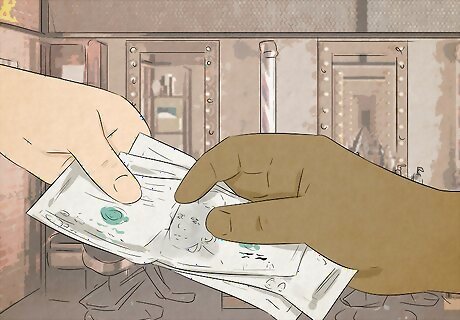
Understand working for commission. This is especially common when you are just starting out. You won't have a client base to support you, so you might be hired to barber for commission. This, most usually, entails a percentage split, where you split your profits with the barbershop. A 60% take home with 40% returned to the barbershop is not uncommon while you build your clientele.
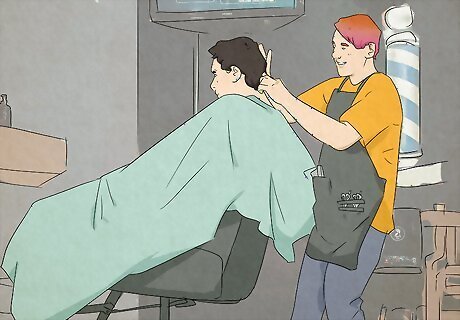
Work your way up to renting a chair. As your client base grows and you gain more regular clients, you should renegotiate so that instead of paying commission per client you are instead playing a flat fee for use of the chair. This is referred to as "chair rental." In this case, you will not have to split any profits with the establishment, you will only be expected to pay a set fee.
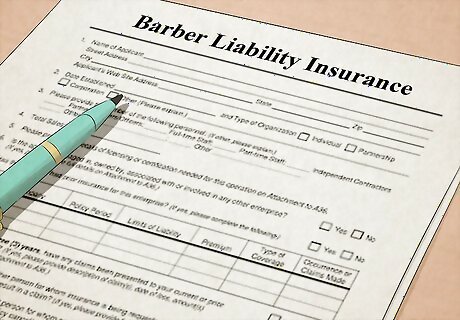
Insure yourself against liability. If you are cutting your way to owning your own barbershop, you'll need to shop around for insurance and be sure you have it before opening shop. Most states will require you to have some kind of legal coverage.
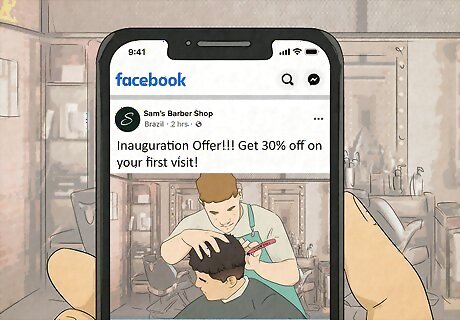
Advertise locally and be patient. With online services, like Facebook, Twitter, and Yelp, you can get word out to new potential customers about your services and skills. However, it can take time before word gets out and the clients come in. You should be prepared both financially and emotionally to wait out opening doldrums.
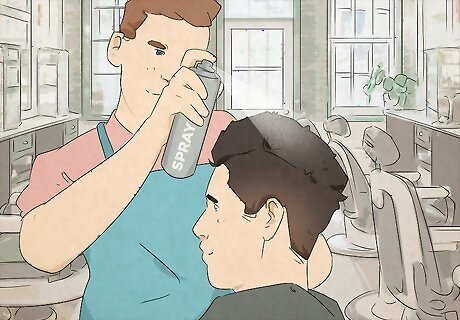
Optimize your products. Quality products are an investment in your business, and customers will appreciate quality tools and a comfortable environment. You should also pay attention to trends in style. If you notice locals in your area preferring a kind of wax or some other product, you may want to include that you carry this product in an advertisement.
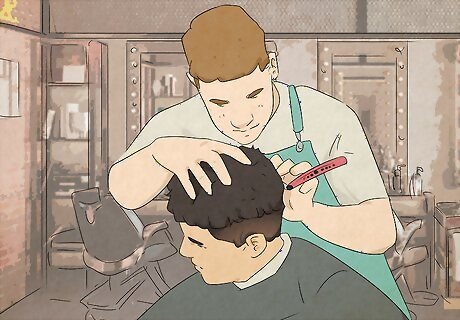
Provide unique and exceptional service. Some barbers, especially those who have been around a long time, can make ends meet offering only the basics. As a newly licensed barber, you should consider offering unique or special services. Something as simple as hot towel service and your winning personality can earn you customers and set you apart from the rest.















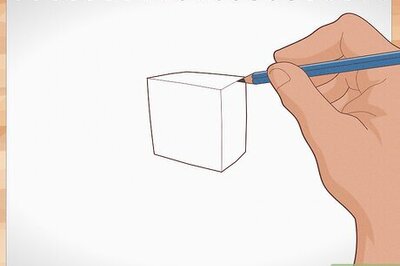
Comments
0 comment